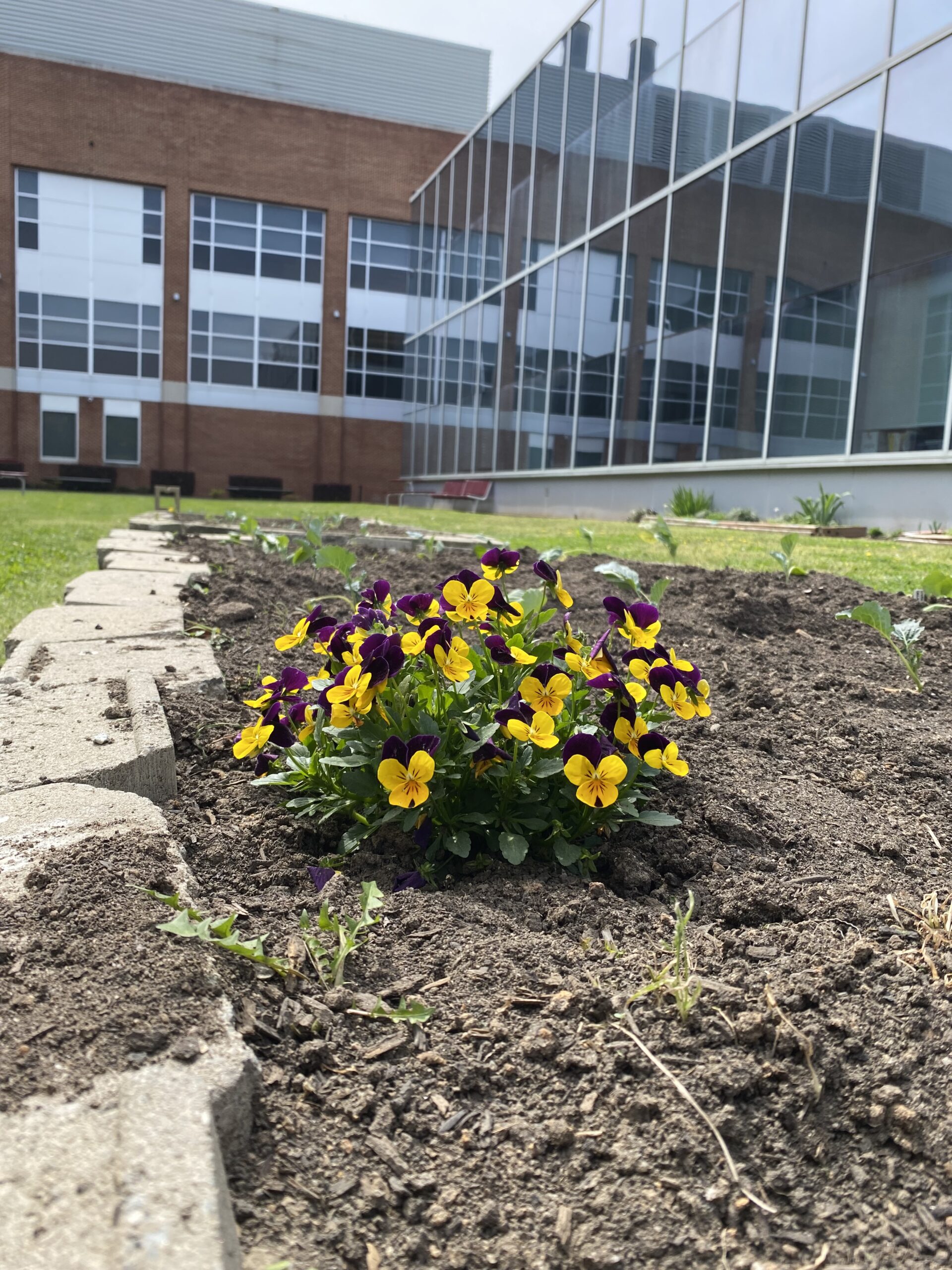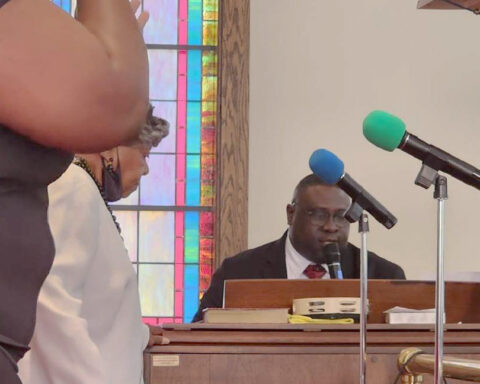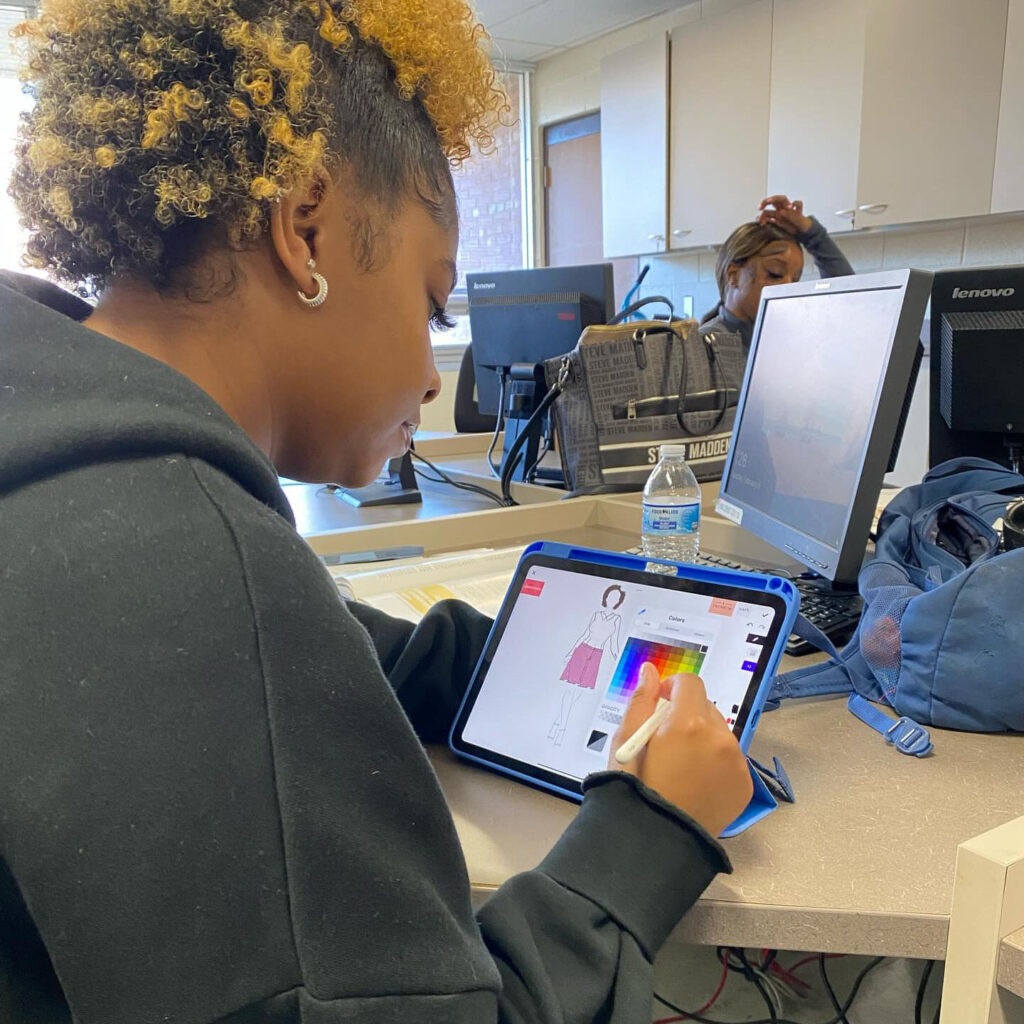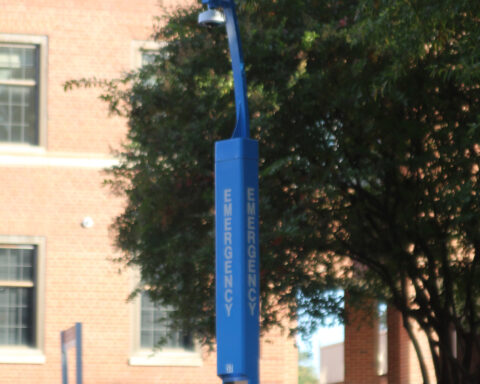Fresh fruits and vegetables aren’t the only things growing in N. C. Central University’s Campus Community Garden this spring.
New leadership opportunities, research projects, and a full layout restructuring are in the works, alongside the abundance of fresh produce, according to NCCU senior academic advisor Tamette Farrington, who helps out at the garden as an operations manager. The garden is near Lawson Street next to the Mary Townes Science Building.
Farrington has been volunteering her time and energy at the campus garden since 2019, and she expressed excitement over the number of new opportunities available to students this semester.
“This year on April 5th, a Friday, we’re going to be changing the garden to be raised beds so that we can make them more accessible. We have over 20 beds,” Farrington said.
This project will require a lot of hands-on time and student planning, Farrington explained. The community garden is run by an administrative board of students overseen by an advisory committee made up of school faculty, alumni, and students, as well as Durham citizens.
The garden’s operators are hoping for help from the U.S. Department of Agriculture’s Supply Chain Assistance program, which provides funding to eligible school authorities and districts to increase students’ access to nutritious foods by reducing supply chain disruptions, according to the program’s webpage.
“This semester the students submitted their first grant for SCA funding, and they also conducted some research to assess the campus, and we also have a full executive board. We’ve had some major, major changes,” Farrington said.
Farrington said she has been working hard since the pandemic to restructure the campus garden and bring more internal leadership opportunities for students, as well as changes to the physical space.
Those changes mean opportunities for students interested in stepping up, like NCCU junior Anaia Clyburn, who is working for the community garden this semester as event coordinator.
Clyburn has been volunteering at the garden for the last two years, working her way up from volunteer to team lead to her current position. She recalled that she initially learned about the campus garden through her search for community service hours and kept coming back for the collaborative, community-oriented environment she found there.
“It helps you build a lot of leadership skills and communication skills with your peers that you might not have had before, and it’s also just a really fun experience,” Clyburn said. “I’m just excited to see where it goes and see what we do next, because we do have some very big plans coming for the garden.”
The community garden hosts a variety of events and activities in which students can participate for community service hours, or simply for socializing, Clyburn explained.
“We usually plan both social and educational events that focus around not only gardening facts and how to take care of a garden, but also, like, nutrition and your dietary needs based off of what you can grow at home,” Clyburn said.
“We’ll also be doing some research behind the psychology of food, and why is it that people know what to eat to be healthy and they know where to get it from, but they still don’t,” Farrington said.
Farrington said she wants students to understand that they don’t need prior experience to volunteer at the garden. She fondly recalled her own start as a volunteer, “pulling weeds with the students,” when she had no prior experience herself.
“You don’t necessarily have to be in the garden digging up dirt, or anything like that, in order to get community service hours and be a part of the garden,” Farrington said. “There are some administrative things that we need help with, so if you have an HR or business background, accounting, or anything, it’s interdisciplinary.
“You just have to come with a willing heart and ready to learn, and a good attitude.”



















